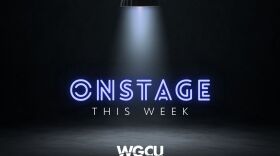The City of Fort Myers is admitting that it did not follow procedures, after high amounts of coliform bacteria showed up in test samples last November.
Some city representatives, however, said they didn't know.
First Ward Councilwoman Teresa Watkins Brown asked about the issue, said she knew nothing about it until she received a letter in the mail.
"I just opened my mail and saw the letter. I didn’t know about this," she said, adding she asked Fort Myers Public Utilities Director Richard Moulton to respond to media inquiries about the issue.
The city did publish a legal notice in the Fort Myers News-Press on July 11, attempting to explain the situation.
In the notice Fort Myers advises pregnant women, and people with compromised immune systems, to consult their doctors if they have any concerns about drinking city water.
The Environmental Protection Agency says Coliform bacteria usually is harmless, but high amounts can indicate that E-Coli could be in the water. E-Coli comes from fecal material, and can cause serious illness.
Justin Mahon, the city's environmental specialist, supplied these details to WGCU News.
He said in an email that the public utilities department did retest within 24 hours of receiving the positive results, which he called the protocol. "The issue is not that resamples were not collected, but that we did not issue a level one assessment for the number of positives in that initial round of testing in a timely manner," Mahon stated.
The new tests came back negative, leading utilities officials to conclude that lab or human error caused the positives. A level one assessment is a deeper investigation into what is happening with the water. The city said it requires a level one assessment when more than five percent of samples in a month are positive for coliform.
Fort Myers officials believed a letter they sent to the Florida Department of Environmental Protection (FLDEP) would be sufficient to explain what was going on. That letter suggested the false positives were the result of lab or human error. The FLDEP did not accept the letter as sufficient.
The city emphasizes that it continued to test the water, as it said it does 90 times every month, and found no more positives. Those tests included some on June 13, which also were negative.
Mahon said the issue was not lack of sampling, but rather the paperwork and reporting that the city submitted outside of the FLDEP timelines.
"The city did do its due diligence to ensure the water was safe by immediately resampling, but incorrectly assumed the FDEP would accept a letter from the lab who collected the samples saying they should not have collected the samples, and the results should be invalidated," Mahon said in his email.
So far Mahon and other city officials have not said whether any council members were informed of all this, while it was unfolding. Nor have they explained why Watkins Brown was not informed.
The city says the bottom line is that the water was, and is, fine, and nobody has gotten sick from drinking it.
WGCU is your trusted source for news and information in Southwest Florida. We are a nonprofit public service, and your support is more critical than ever. Keep public media strong and donate now. Thank you.







